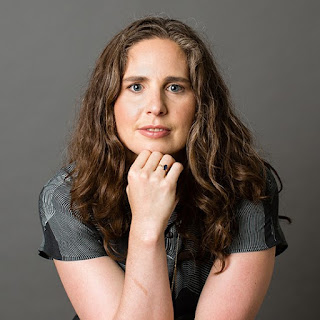We are pleased
to announce that our Distinguished Lecturer in Mathematics and Statistics for
the 2021-22 academic year, Dr. Lauren Klein of Emory University, will be presenting on Zoom two distinguished lectures:
“Data Feminism in Action” on Wednesday, March 2, from 3-4 p.m. and “Data
Feminism” on Thursday, March 3, from 12:45-1:45 p.m.
Dr. Lauren Klein is Winship Distinguished Research Professor and Associate Professor in the departments of English and Quantitative Theory & Methods at Emory University. Klein works at the intersection of digital humanities, data science, and early American literature, with a focus on issues of gender and race. She is the author of “An Archive of Taste: Race and Eating in the Early United States” (2020) and, with Catherine D’Ignazio, “Data Feminism” (2020). With Matthew K. Gold, she edits “Debates in the Digital Humanities,” a hybrid print-digital publication stream that explores debates in the field as they emerge.
Talk #1: Data Feminism in
Action (Virtual)
Date: Wednesday, March 2
Time: 3:00 - 4:00 pm
In-Person Viewing Location: SLC 120
Zoom Link: https://minnstate.zoom.us/j/91571903912
Abstract: What is feminist data science? How is
feminist thinking being incorporated into data-driven work? How are scholars in
the humanities and social sciences bringing together data science and feminist
theory in their research? Drawing from her recent book, “Data Feminism,“
coauthored with Catherine D’Ignazio, Klein will present a set of principles for
doing data science that are informed by the past several decades of
intersectional feminist activism and critical thought. To illustrate these
principles, as well as some of the ways that scholars and designers have begun
to put them into action, she will discuss a range of recent research projects
including several of her own: 1) a thematic analysis of a large corpus of
nineteenth-century newspapers that reveals the invisible labor of women
newspaper editors; 2) the development of a model of lexical semantic change
that, when combined with network analysis, tells a new story about Black activism
in the nineteenth-century United States; and 3) an interactive book on the
history of data visualization that shows how questions of politics have been
present in the field since its start. Taken together, these examples
demonstrate how feminist thinking can be operationalized into more ethical,
more intentional, and more capacious data practices.
Talk #2: Data Feminism (Virtual)
Date: Thursday, March 3
Time: 12:45 – 1:45 pm
In-Person Viewing Location: Kryzsko Ballroom (registration required)
Zoom Link: https://minnstate.zoom.us/j/96504864291
Abstract: As data are increasingly mobilized in
the service of governments and corporations, their unequal conditions of
production, their asymmetrical methods of application, and their unequal
effects on both individuals and groups have become increasingly difficult for
data scientists to ignore. But it is precisely this power that makes it worth
asking: Data science by whom? Data science for whom? Data science with whose
interests in mind? These are some of the questions that emerge from what we
call data feminism, a way of thinking about data science and its communication
that is informed by the past several decades of intersectional feminist
activism and critical thought. Illustrating data feminism in action, this talk
will show how challenges to the male/female binary can help to challenge other
hierarchical (and empirically wrong) classification systems; it will explain
how an understanding of emotion can expand our ideas about effective data
visualization; how the concept of invisible labor can expose the significant
human efforts required by our automated systems; and why the data never, ever
“speak for themselves.” The goal of this talk is to model how scholarship can
be transformed into action: how feminist thinking can be operationalized in
order to imagine more ethical and equitable data practices.

